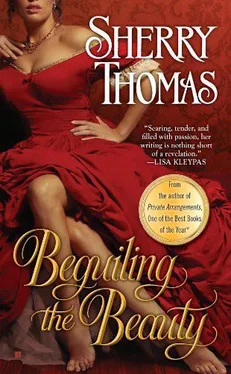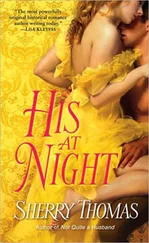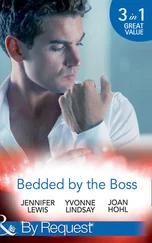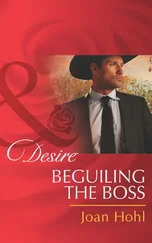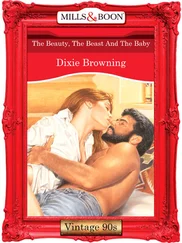“It is not certain I can’t have children,” she said. She shouldn’t. She knew he was goading her. But somehow, on this subject, she rose to the bait every time.
“How many physicians does it take to convince you? Besides, my friends marry and within a year they already have heirs. It’s been two years for us and you show not the least sign of increasing.”
She bit the inside of her lip. The blame for their failure to procreate could just as well lie with him, but he refused to even contemplate that possibility.
“But you will be glad to know that your looks aren’t entirely useless. Howard agreed to join my rail venture—and I daresay he did so to have more opportunities to seduce you,” said Tony.
At last she looked at him. The harshness of his voice was reflected in his countenance, his once winsome features now hard and brittle. During their courtship she’d thought him impossibly appealing—funny, smart, and lit from within by a thirst for life. Had he truly changed so much or had she been blinded by love?
And if he despised Howard for wanting her, then why bring Howard deeper into their lives? They didn’t need the rail venture. Nor another source of displeasure for him.
“Are you going to betray me?” he demanded suddenly.
“No,” she said, weary almost beyond what she could bear. His contempt and dismissal of her had become a near-permanent condition of their marriage. The only thing he cared about—or so it seemed sometimes—was the matter of her fidelity.
“Good. After what you’ve made me become, being faithful is the least you can do for me.”
“And what have I made you become?” She might not be a paragon but she had been a decent wife. She saw to his every comfort, never overspent her allowance, and gave no encouragement to men like Howard.
His voice was bitter. “Don’t ask useless questions.”
She turned her face back to the window. The pavement had disappeared under a horde of black umbrellas.
Even inside the carriage she felt the incipient chill. Summer would end early this year.
A short time later Christian finished his last term at Harrow and went on to read the Natural Science Tripos at Cambridge. The summer after his second year at Trinity College, he took part in a dig in Germany. On his way back to Algernon House, he stopped in London to inspect a new shipment of marine fossils at the British Museum’s natural history division, fossils that would not be available for public viewing for some months.
The discussion engendered by the new fossils was most stimulating, so much so that instead of continuing on with his journey home, Christian accepted an invitation to dine with the curator and several of his colleagues. Afterward, rather than retiring immediately to his town residence, where a small staff kept the house ready for his use should he require it, he decided to while away an hour at his club. Society had departed London at the end of the Season; he could expect to be largely undisturbed.
The club was indeed quite empty. With a glass of brandy by his side, he settled in and tried to read the Times .
The days were easier. Between his course work, his estate, and his friends, Christian’s hours were fully occupied. But at night, when the world quieted and he was alone with his thoughts, his mind turned all too often to the woman who’d pickpocketed his heart without so much as a glance.
He dreamed of her. Sometimes the dreams were lurid, her naked, lithe body under his, her lips whispering lecherous words of encouragement into his ears. Other times she remained resolutely out of reach, walking away while he was rooted to the ground, or coming to stand next to him just after he’d been turned into a stone statue. He would struggle and shout inside his marble confines, but she took no notice at all, as uncaring as she was lovely.
Someone entered the dark-paneled library. Christian recognized the man instantly: Anthony Townsend. Her husband.
The years since his encounter with Mrs. Townsend had been a long tutorial in the frailer aspects of humanity. Until he’d met her, he’d not known envy, misery, or despair. Nor guilt, which pulsed through his veins at the sight of Townsend.
He’d never wished the man ill—and rarely ever thought of him as anything but an immovable object. But he’d lain with the man’s wife countless times in his mind. And if something were to befall Townsend, he’d be the first in line for an introduction to his widow.
Those were cause enough for Christian to drain his brandy and lay aside the paper, still crisp from its ironing. He rose to leave.
“I’ve seen you before,” Townsend said.
After a moment of paralysis, Christian said coldly, “I do not believe we have met.”
He did not quite share his ancestors’ reverence for the family heritage, but he was as unapproachable as any de Montfort who ever breathed.
Townsend, however, was undaunted. “I didn’t say we’ve met, but I know your face from somewhere. Yes, I remember now. Lord’s Cricket Ground, two years ago. You were in a Harrow striped cap, gawking at my wife.”
Christian’s reflection in a window, a stark etching of light against the dimness of the street beyond, showed a man stunned into stillness, as if he’d stared directly into Medusa’s face.
“I can’t remember what my maids look like, but I remember the faces of all the men who salivate after my wife.” Townsend’s tone was strangely listless, as if he was beyond caring.
Christian’s face burned, but he remained silent: No matter how vulgar it was to discuss one’s wife in this manner—and berate those who coveted her—Townsend was within his rights.
“You remind me of someone,” Townsend went on. “Are you related to the late Duke of Lexington?”
If Christian admitted his identity, would Townsend blacken his name before the missus? He watched his lips move in the window. “The late duke was my father.”
“Yes, of course. You’d be Lexington, then. She’d be thrilled to know that someone with your exalted stature considers her a prize.” Townsend chortled, a dry, humorless sound. “You may yet have your wish, Your Grace. But think twice. Or you may end up like me.”
This time Christian could not help his scorn. “Speaking to strangers about my wife, you mean? I don’t think so.”
“I didn’t think I’d be the sort, either,” Townsend shrugged. “Forgive me, sir, for detaining you with my unmanly bleating.”
He bowed. Christian returned a curt nod.
It was not until the next day that he wondered what Townsend had meant by “you may yet have your wish.”
Townsend’s obituary was in the paper within the week. Shocked, Christian made inquiries and learned that Townsend had been on the verge of bankruptcy. Moreover, he owed massive amounts to jewelers both in London and on the Continent. Had he been driven to accumulate those debts to keep his wife happy, so that her gaze would not stray to overeager admirers ready to step in with lavish gifts for her favors?
A year and a day after his death, Mrs. Townsend married again—a scandalously early remarriage when the regulation mourning period was two years. Her new husband, a Mr. Easterbrook, was a wealthy man thirty years her senior. Soon came rumors of a rampant affair she conducted right under Mr. Easterbrook’s nose, with one of his best friends, no less.
Evidently Christian’s beloved was a shallow, greedy, selfish woman who injured and diminished those around her.
He forced himself to accept the truth.
It was not terribly difficult to avoid her. He did not move in the same circles as she, did not attend the London Season, and did not follow the fashionable calendar of events. Therefore he should not have run into her coming out of the Waterhouse Building on Cromwell Road, which housed the British Museum’s natural history collections.
Читать дальше
